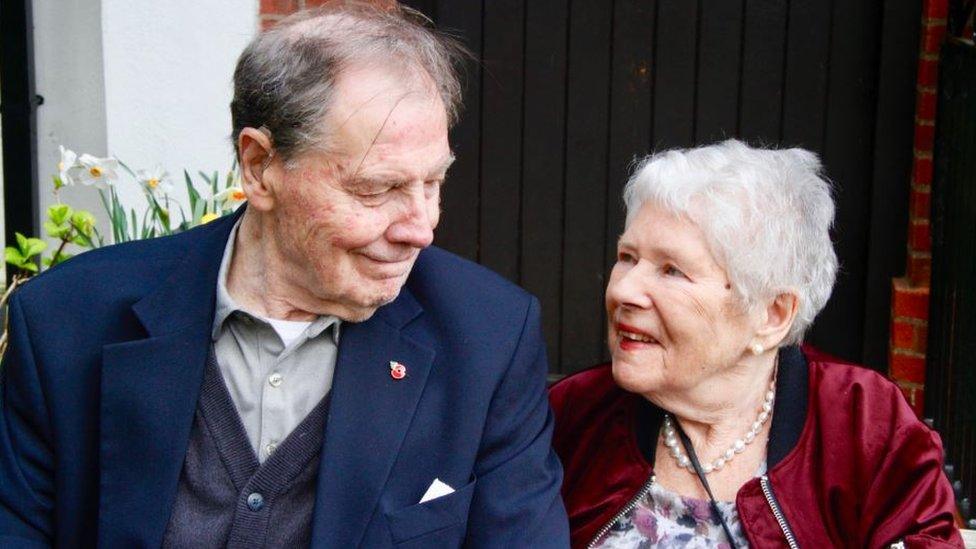Covid: Key workers explain their pandemic working year
- Published
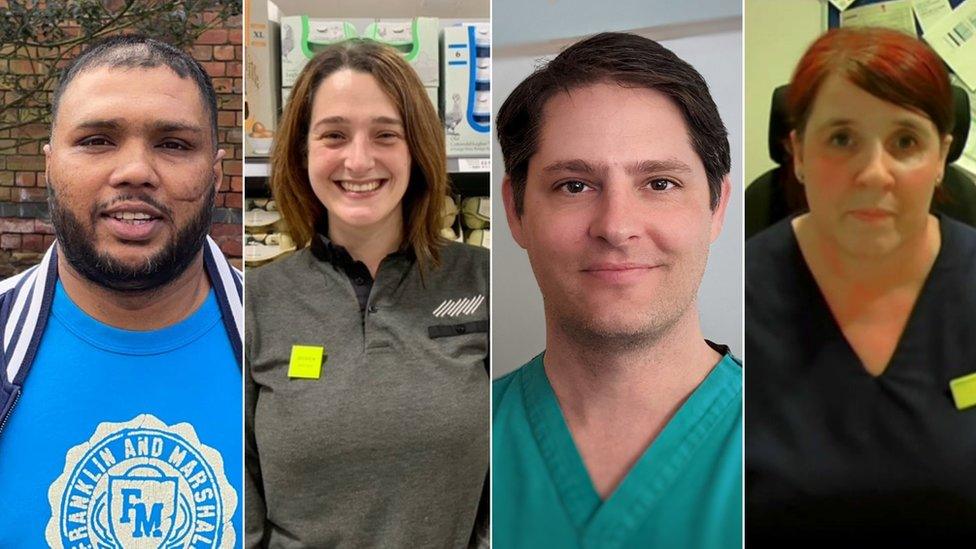
Key workers consider the impact the pandemic has had on their lives
"Stay at home, protect the NHS and save lives" was Prime Minister Boris Johnson's message during the national broadcast announcing the country's first coronavirus lockdown a year ago.
His speech from behind a desk in Downing Street on 23 March 2020 meant schools closed their doors, businesses told staff to work from home and people began to shelter and shield to try and slow the spread of Covid-19.
But for many key and essential workers, the "stay at home" rule did not apply.
Across the country legions of health and social care workers, delivery and transport staff and supermarket and food industry employees kept heading to their jobs to ensure the nation was able to keep on functioning.
BBC News has spoken to some of them about how working through a pandemic has impacted on their and their families' lives.

My family 'lost me'
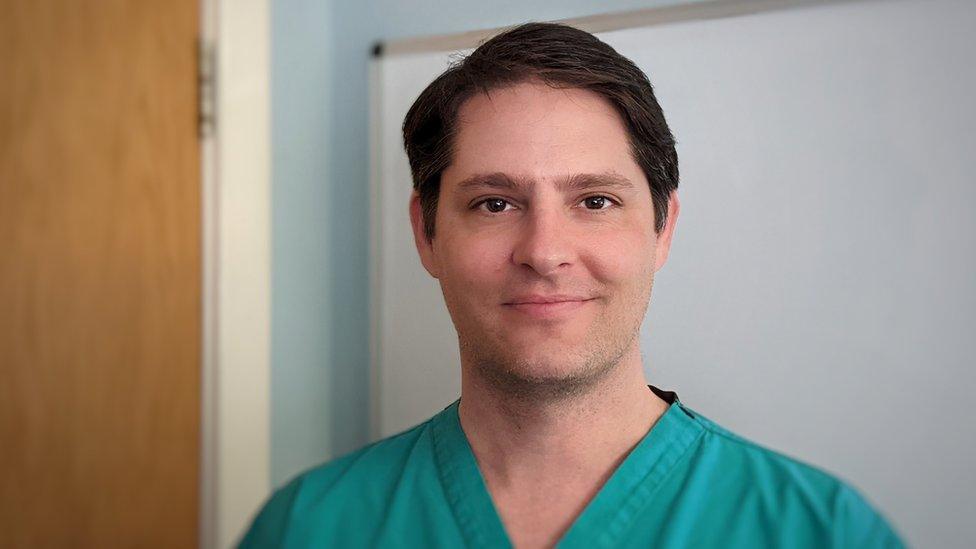
Dr Dean Eggitt said people do not appreciate the level of sacrifice he and his colleagues have made
The last 12 months have been a year of "24/7 work," according to Dr Dean Eggitt.
The GP, from Doncaster in South Yorkshire, said he and his colleagues had faced "extremely long hours" and "very little down time".
"I've turned up to work earlier and I've left work later. There's not been an opportunity to switch off your brain."
Dr Eggitt said it was his family life which had suffered the most.
"Quite frankly my family have lost me over the last year," he said.
"I go to work before my family wake up and often I might get home after my children are in bed. I don't get to settle down with them."
He said even at weekends he often retired to a different part of the house to prepare for work the following week.
There had also been an impact professionally. There had been no time for education and study to keep up with professional and health care advances.
Dr Eggitt said it was clear the public had shown appreciation for the NHS as an institution, but said he was not sure if people really recognised the impact on the individuals working within it.
"The sacrifice we have made is profound and I am not sure yet people understand the depth of that," he added.

'We stepped up'
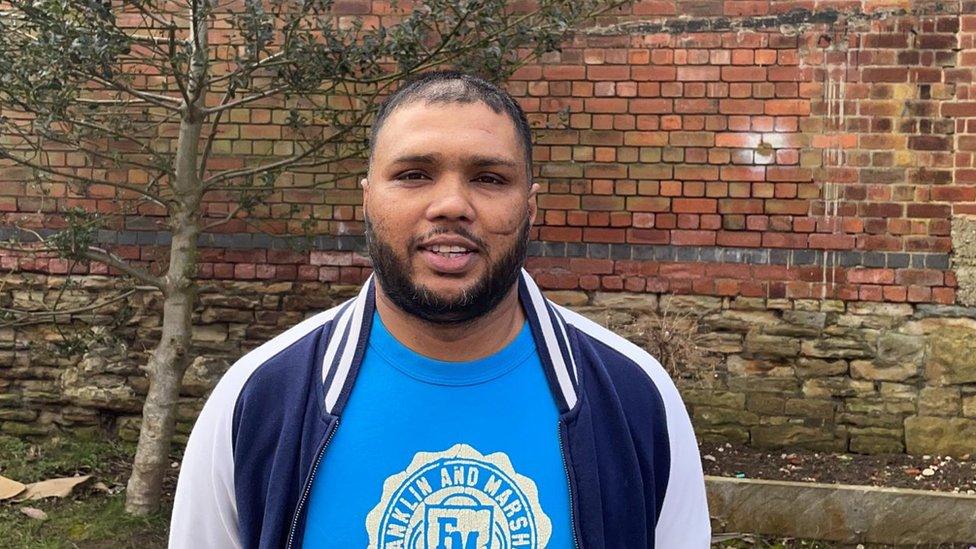
Dee Uddin believes the public appreciate what he and other drivers have done
Takeaway driver Dee Uddin, from Sheffield, has worked throughout the crisis for a number of different companies delivering meals, food, medicines and groceries to people.
He said the work had changed over the last year.
"You can't go home as often as you would, the quiet period, just in case you've caught the virus."
Instead he works right through the day and goes home to shower at the end of a shift.
"I will drop the kids off in the morning and won't see them till last thing at night. It's been hard, the little sacrifices you have to make."
Many major firms have increased the number of people driving for them to meet demand and that has also had an impact.
"The pay has gone down, there's a load more drivers and what we were earning a couple of years ago, I don't think we are earning half that now," he said.
Despite the problems, Mr Uddin said he was proud of what he has been doing.
"I am doing something for our country, they needed us we stepped up. Survival of other people is more important to us than thinking about ourselves."
He said he also felt the community appreciated what drivers had been doing.
"There's a lot of appreciation, thank you tips, the gratitude is just amazing from the people, they understand we are needed and are there to support them."

'Unbelievably hard'
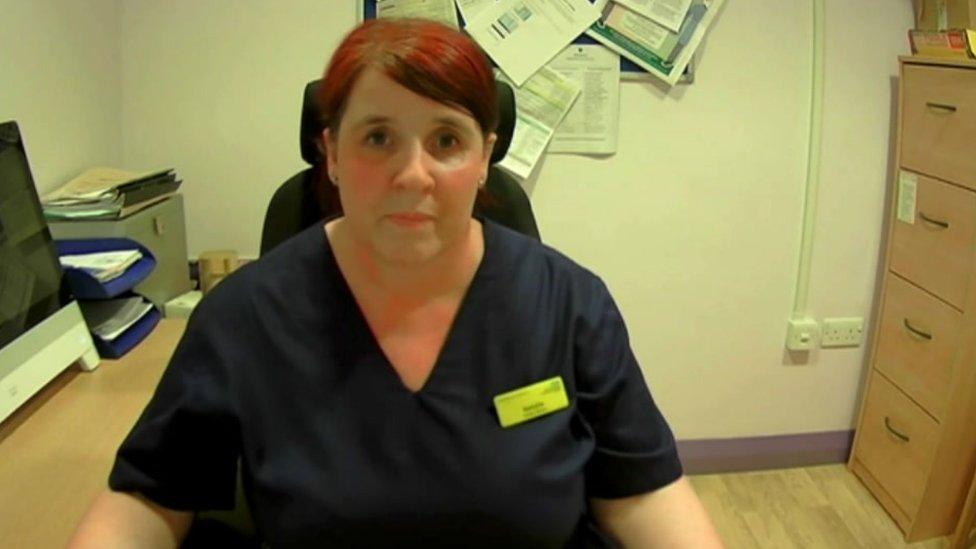
Despite a hard year Natalie Glew says she still loves her job
"We've seen more loss in this last year than in our whole careers," Natalie Glew said.
As a senior nurse in intensive care at Hull Royal Infirmary she said the first wave had been "really scary," but she and her colleagues had pulled together to get through it.
"The team we've had on has been phenomenal and that's what gets you through a shift," she said.
Ms Glew said it was communication with both patients and their families which proved most difficult.
"We've had to be both family and nurse to these patients. It's been unbelievably hard."
There were changes at home too.
"You were frightened to death you would take something home to your loved ones.
"You carry on being Mum, but at the back of your mind you are still sanitising everything and making sure everything is clean."
Despite a difficult year, Ms Glew believes she has coped well and has no doubt she wants to continue in nursing.
"I will definitely carry on, I absolutely love my job," she said.

Work is 'bit of normality'
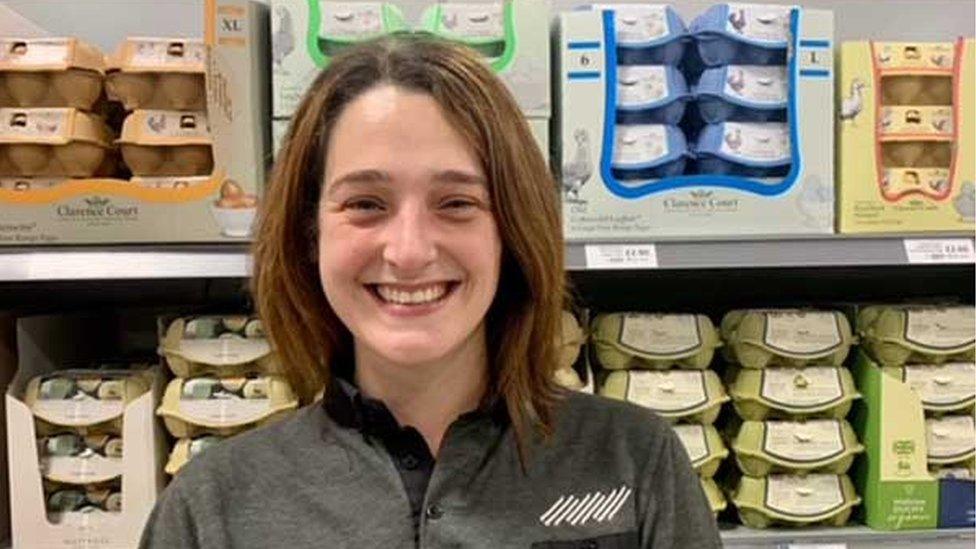
Jessica Turner says everyone has had to make changes
Supermarket employee Jessica Turner used to work in her store's cafe, but switched to working nights picking goods for online orders.
She said the whole team had "pulled together".
"It's just been really different, it's not been hard," she said.
"As humans we kind of adapt, work has been a good constant, seeing the same work faces and having that bit of normality has been nice."
Mrs Turner, who works for Waitrose in Sheffield, said she had been able to learn new skills at work as her role evolved.
At home she has made some changes, from swapping the school run with her husband to having to rearrange childcare.
"Everyone has made mini changes in their lives," she said.
Public appreciation for the work she and her colleagues have been doing was also apparent, Mrs Turner said.
"I have a lady every Wednesday and she always puts a lovely comment on. When you are picking at three in the morning it's so nice to see those.
"It just makes us feel we are doing something worthwhile, we are keeping customers safe and doing a good job at the same time."

Follow BBC Yorkshire on Facebook, external, Twitter, external and Instagram, external. Send your story ideas to yorkslincs.news@bbc.co.uk or send video here.
- Published22 March 2021
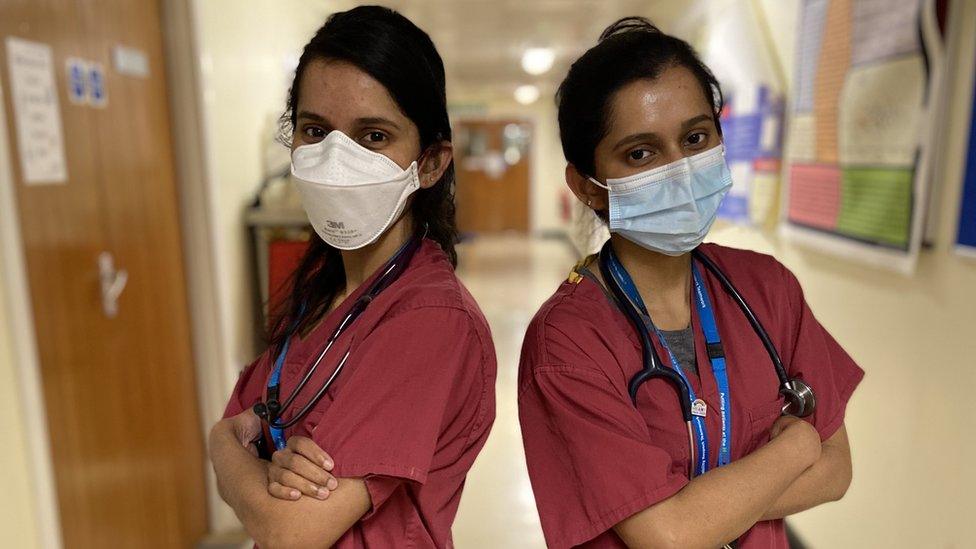
- Published21 March 2021
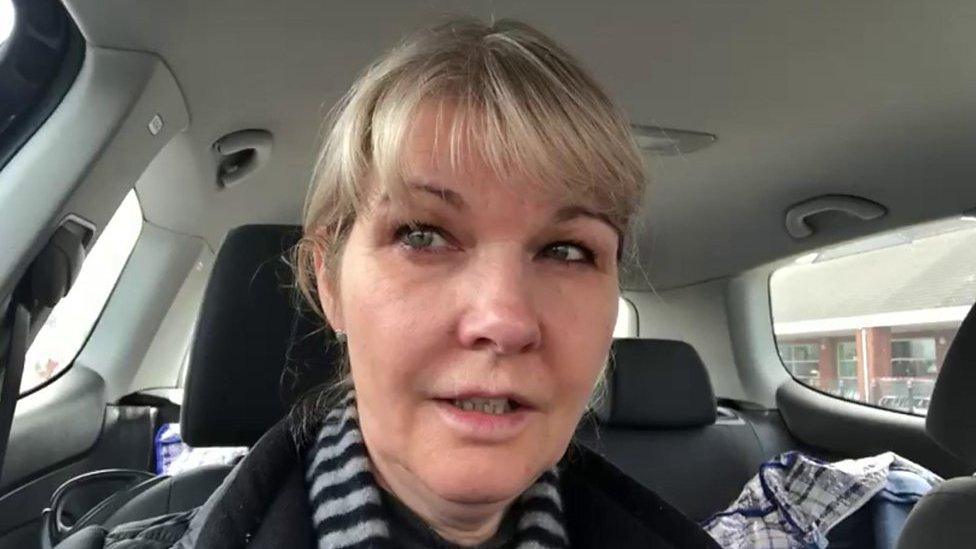
- Published19 March 2021
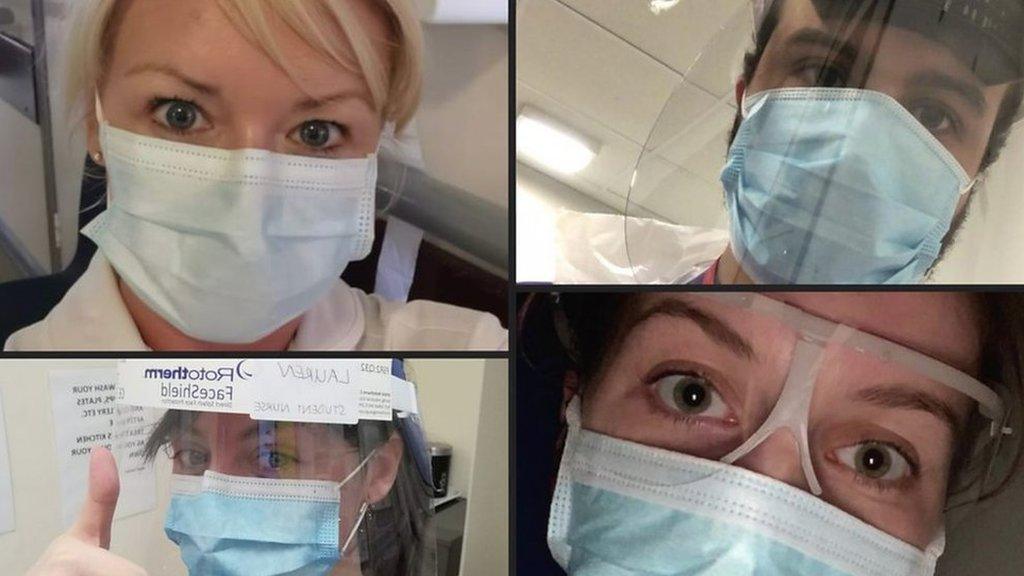
- Published19 March 2021
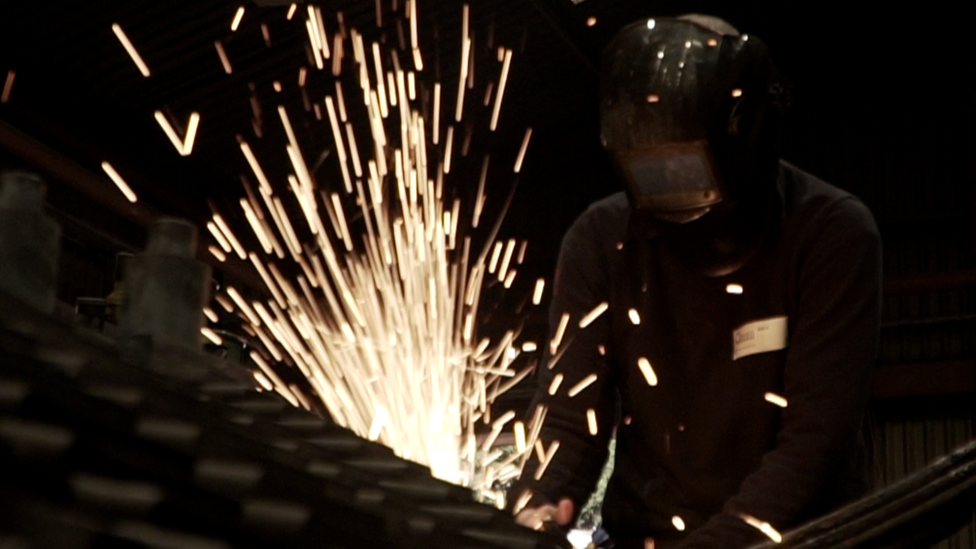
- Published17 February 2021
